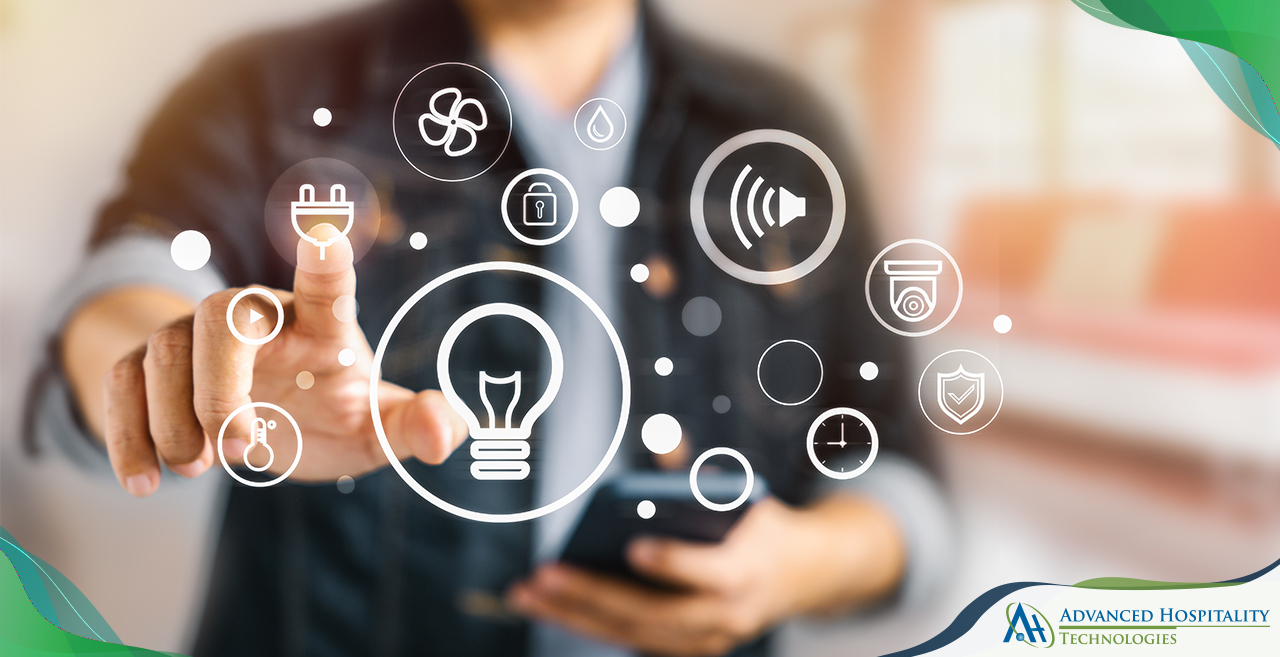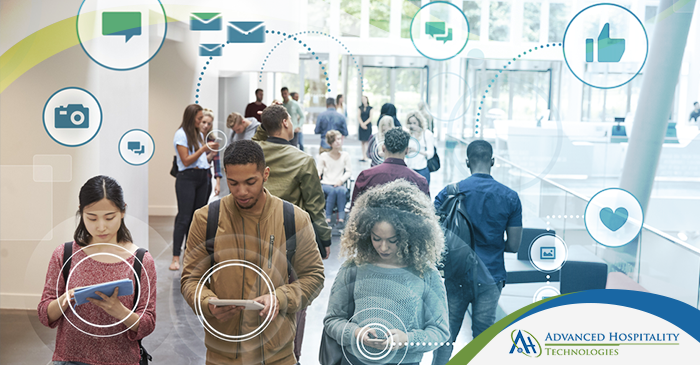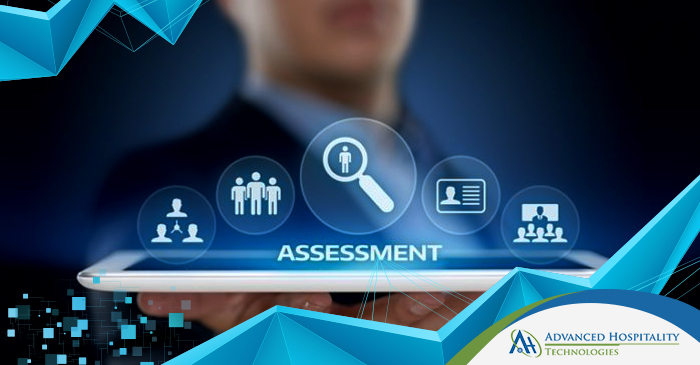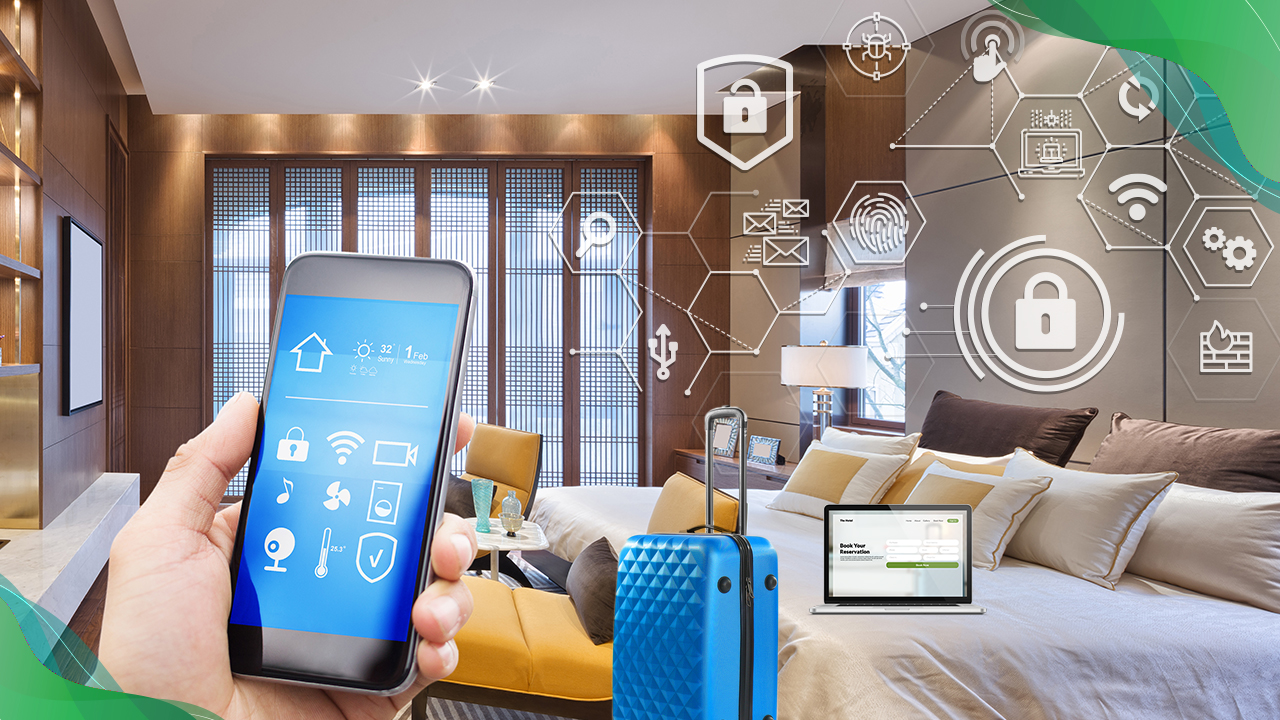Introduction
The Internet of Things (IoT) is transforming industries through connected devices and intelligent analytics. In hospitality, IoT offers new ways to enhance guest experiences while optimizing operations. One key application is energy management, which allows hotels to reduce energy consumption and costs.
This article explores how IoT enables advanced energy management in the hospitality sector. We’ll provide an overview of IoT, its use cases in hospitality, and the concept of energy management. Then we’ll examine the energy management challenges hotels face, and how IoT systems can address those needs through monitoring, optimization, and savings. Implementing the right IoT energy solution can help hotels cut energy waste, lower utility bills, and meet sustainability goals.
What is IoT?
The Internet of Things (IoT) refers to the network of physical objects embedded with sensors, software, and connectivity that enables them to connect and exchange data with other devices over the internet. At its core, IoT is built on devices and objects that are able to identify themselves and integrate seamlessly into digital networks.
The key components that enable the IoT ecosystem are:
Sensors – These are hardware devices that detect and respond to events or changes in the physical environment such as light, motion, pressure, temperature, etc. Sensors convert the detected events into electrical signals that can be measured and analyzed. For example, smart thermostats have temperature sensors while smart lights have motion detection sensors.
Connectivity – This enables the transmission of data collected by the sensors over the internet. Connectivity is enabled through protocols like Wi-Fi, Bluetooth, LPWAN, and cellular. The most common wireless protocols used in IoT are Wi-Fi, Bluetooth Low Energy, and cellular networks like 2G, 3G, or LTE. Wired connectivity options like Ethernet are also sometimes used.
Data Analytics – The data collected by sensors is analyzed using artificial intelligence algorithms to gain insights and enable devices to take automated actions or send notifications. Data analytics helps make sense of IoT data.
The core value of IoT is its ability to remotely monitor and manage devices and environments through sensors, connectivity, and data analytics. This enables significant efficiency improvements, operational insights, automation, and control. IoT is transforming many industries such as manufacturing, transportation, healthcare and more.

Energy Management in Hospitality
The hospitality sector comprises of businesses that provide accommodation, meals, and other services to people away from home. This includes hotels, restaurants, theme parks, cruise ships, and more. Energy management is critical for hospitality businesses due to the following reasons:
- The hospitality industry is energy-intensive, requiring substantial electricity use for heating, cooling, lighting, cooking, laundry, entertainment, and more.
- Hospitality facilities often operate 24/7 and have consistent energy demands regardless of occupancy or business levels. Unlike offices, demand doesn’t significantly reduce at night.
- Profit margins in hospitality are slim, so controlling energy costs directly impacts the bottom line. Studies indicate that utility expenses are a hotel’s second highest operating cost after labor.
- Guests are becoming more sustainability-conscious, so hotels need to demonstrate environmental responsibility. Energy efficiency gives them a competitive edge.
Effective energy management in hospitality involves monitoring consumption by energy type (electricity, gas, etc); identifying waste through audits; preventing losses via equipment maintenance; and optimizing usage through technology like building automation systems. Most hotels have adopted LED lighting, occupancy-based controls for HVAC and lighting, low-flow plumbing fixtures, energy-efficient appliances, double glazed windows, and insulation. Major hospitality brands also get Energy Star ratings for their properties. These certifications validate their green credentials.
Still, there is tremendous scope to further improve energy performance in hotels and restaurants. This is where emerging technologies like IoT can play a transformative role, as discussed in the next section.
Challenges of Energy Management
The hospitality industry faces numerous challenges when it comes to effectively managing energy usage and costs. Some key challenges include:
Old and inefficient infrastructure – Many hotels feature old HVAC systems, appliances, lighting fixtures and building materials that are highly inefficient. Upgrading can require major investments. This results in excessive energy waste and expenses.
Occupancy fluctuations – Hotel occupancy and use of amenities varies daily and seasonally, making it difficult to optimize energy usage. Low occupancy can still result in high energy costs.
Distributed facilities – Large resorts, casinos and conference centers often feature many dispersed buildings and facilities. This makes centralized energy management and monitoring difficult.
Lack of visibility – Without remote tracking and analytics, hoteliers lack visibility into how energy is being used building-wide. This makes identifying waste and optimization opportunities difficult.
Siloed systems – In many hotels, each system like HVAC, lighting and more operate independently without coordination. This leads to redundancies and overconsumption.
Guest demands – Guest comfort and demands for amenities can make reducing energy usage challenging. A fine balance must be struck between efficiency and hospitality.
Split incentives – When hotels lease properties, there is little incentive for owners to make upgrades that improve efficiency for tenants.
Overcoming these challenges is crucial for hotels looking to reduce overhead costs, improve sustainability and maximize profits. IoT-enabled energy management solutions can provide the visibility, control and coordination needed.
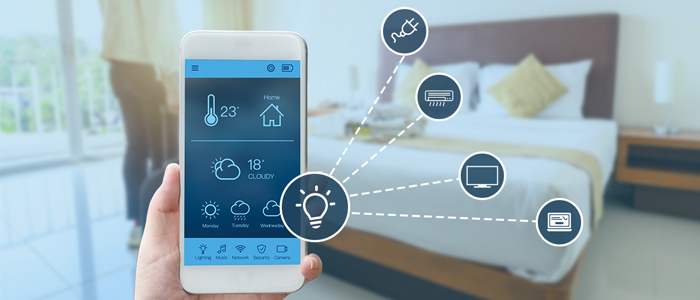
IoT for Energy Monitoring
Internet of Things (IoT) sensors and devices provide hotels with more visibility into their energy usage, allowing them to monitor various systems and spot inefficiencies. By installing sensors on HVAC units, refrigeration systems, lighting, and other energy-intensive equipment, hotels can track their energy consumption in real-time.
- IoT-enabled sensors can detect issues like:
- HVAC units running overtime or not optimally
- Lights and appliances left on unnecessarily
- Refrigerator doors left open or units with failing compressors
- Rooms that are overheated or overcooled
All this granular data is aggregated and analyzed through an IoT energy management platform. Hotel staff can view energy dashboards that highlight anomalies and identify areas for improvement. They can also set usage baselines and get alerts for unexpected fluctuations. This allows hotels to quickly troubleshoot problems before they result in massive waste and higher utility bills.
IoT monitoring provides the visibility hotels need to understand their complete energy profile. Access to real-time usage data also helps hotels recognize energy patterns and trends. Over time, hotels can leverage analytics from an IoT energy platform to further refine operations for greater efficiency. With continuous monitoring, hotels can significantly reduce their energy consumption across various systems.
IoT for Energy Optimization
IoT sensors provide granular data on energy usage across all hotel operations and systems. This data is invaluable for identifying optimization opportunities to reduce energy waste and costs.
For example, IoT sensors on HVAC systems can detect inefficiencies and monitor metrics like temperature and occupancy in different zones. With this data, hotels can optimize heating and cooling based on real-time demand rather than keeping systems running 24/7. The sensors allow hotels to identify underutilized spaces that can have HVAC minimized during off-peak times.
IoT also enables remote monitoring and control of lighting systems. Smart lighting solutions with embedded sensors can detect occupancy and daylight availability to dim or turn off lights when not needed. These systems generate data to optimize lighting schedules and patterns to reduce energy consumption.
In guest rooms, IoT occupancy sensors can detect the presence of guests and automatically adjust HVAC, lighting, and appliances into energy-saving modes when rooms are vacant.
Across other hotel facilities like pools, gyms, and conference rooms, IoT sensors monitor utilization levels so energy systems can be optimized according to demand fluctuations. Low-occupancy areas can be identified and targeted for energy reductions.
By generating granular visibility into energy consumption, IoT data empowers hotels to optimize usage across all operations for significant energy and cost savings. The IoT platform becomes the foundation for an efficient, intelligent energy management strategy.
IoT for Energy Savings
IoT enables substantial energy and cost savings for hotels through data-driven optimization of energy usage across the property. By monitoring real-time data on energy consumption from smart sensors and meters, hotels can identify opportunities to reduce waste, streamline operations, and cut utility bills.
For example, the Hilton San Diego Bayfront Hotel implemented an IoT solution to continuously track the hotel’s energy usage. This enabled them to optimize the programming of their building management system, resulting in a 13.6% reduction in gas usage and 9.5% reduction in electricity usage per square footage. They achieved over $200,000 in energy savings within the first year.
Similarly, Caesars Entertainment deployed an enterprise IoT platform across their properties to analyze energy data and identify optimization opportunities. They realized $865,000 in annual cost savings through improved HVAC efficiency, lighting automation, and other measures. The system provides an estimated payback period of just 1.2 years on their investment.
InterContinental Hotels Group also reports that IoT-enabled building automation helped reduce energy usage by up to 25% per square meter at some hotel properties. Smart thermostats that adjust temperatures based on occupancy patterns and carbon monoxide sensors that improve garage ventilation are examples of IoT implementations that directly reduce wasted energy.
By leveraging the data insights from IoT systems, hotels can continuously improve operations, update energy settings, and identify maintenance issues that lead to energy savings. IoT allows hotels to become more efficient, cost-effective, and environmentally friendly.
Implementing an IoT Energy Management System
Overview of what’s needed for a hotel to implement an IoT system for energy management:
- IoT-enabled sensors and devices: These collect real-time data on energy usage from equipment like HVAC systems, lighting, refrigeration, etc. Popular sensor types include temperature, humidity, motion, light, air quality, and more.
- Connectivity protocols: Sensors and devices need to connect to a centralized system. Popular protocols like WiFi, Bluetooth, Zigbee, and LPWAN allow device communication. Gateways may be used to connect non-IP devices.
- Data platforms: Software to aggregate and analyze real-time data from sensors. Advanced analytics like AI can help uncover optimization opportunities. Dashboards allow visualization.
- Integration with property management systems: Energy analytics have more value when coupled with PMS data like occupancy, schedules, etc. APIs enable integration.
- Cloud/On-premise servers: Energy management platforms need backend infrastructure to process and store data. Cloud offers more flexibility. On-premise allows more control.
- Energy saving mechanisms: Optimized setpoints, schedules, alerts, etc. help translate insights into savings. Control systems help automate energy management.
- Personnel training: Staff need training to use energy analytics dashboards and understand optimization recommendations. Feedback loops are necessary.
- Maintenance: Regular sensor checks and battery replacements ensure continued functioning. Software updates help keep cybersecurity robust.
With the right IoT infrastructure and ecosystem, hotels can monitor all energy consumption, identify waste, tweak settings for efficiency, and ultimately reduce their carbon footprint.
Conclusion
The hospitality industry can significantly benefit from implementing an IoT energy management system. By leveraging IoT sensors and analytics, hotels can achieve better energy monitoring, optimization, and cost savings.
In summary, IoT enables automatic and real-time energy data collection across hotel assets. This provides visibility into energy usage patterns and helps identify opportunities for efficiency gains. With advanced analytics, hotels can detect abnormal consumption, faults, and predict future energy needs.
IoT also allows remote control over connected devices and building systems. This facilitates real-time adjustments to lighting, HVAC, appliances to minimize wastage and align with occupancy. Granular control and automation enabled by IoT leads to greater optimization and lowers energy spending.
Overall, IoT is transforming energy management in the hospitality sector. It provides the technology infrastructure to monitor all energy streams, perform predictive analysis, and take timely efficiency actions. Hoteliers that implement a smart IoT energy solution can expect to see substantial cost savings, improved sustainability, and enhanced guest experience. With real-time insights and automation, IoT paves the path for hotels to become intelligently energy-efficient.

